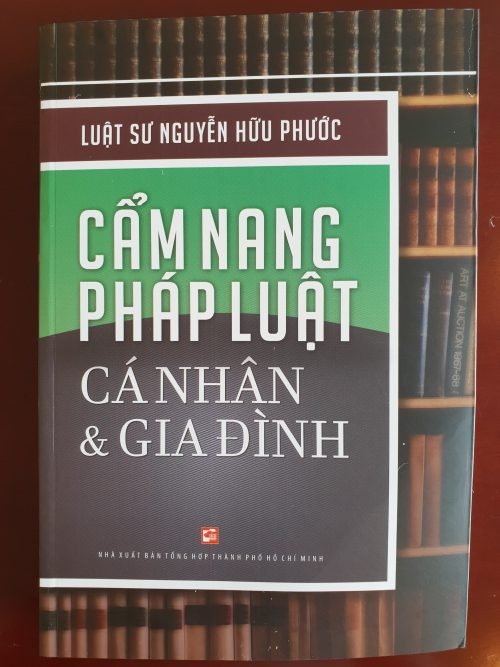The author’s idea to create a handbook that people can easily search and find useful legal information for their family members came about in a very coincidental way. It was during a conversation between the author and his friend. This friend complained that there are too many legal regulations and administrative procedures. The friend himself also felt very awkward in performing certain legal procedures, often not knowing what to do or where to start. Normally, he would ask an acquaintance to see if such acquaintance had done it before and then would follow it. However, not all procedures are known. In fact there are many complicated procedures, and even a trusted network of acquaintances will not know what to do in every scenario.
When faced with this reality, the friend was extremely miserable, as there was no other way but to rely on a legal consulting firm to help, otherwise it will take him a lot of time and effort, and then with no certainty of the desired result. From that conversation, the author thought that, if in Vietnam there was a handbook to gather and introduce relevant procedures and rules in a friendly user format, everyone would benefit. Since then, the author has worked on turning that idea into the handbook that you currently hold in your hand today.
Indeed, social development is also accompanied by more and more legal regulations and administrative procedures to be issued. However, with your daily time limit, you will not be able to grasp all the laws and administrative procedures that relate to yourself and your family. As a matter of fact, many of us who first wants to find out about a law or administrative procedure will first ask an acquaintance who may have previous experience or knowledge of these administrative procedures. If there are none available, we usually search for the information on the internet or refer to law books available at bookstores. In general, people have a variety of ways to understand the law, but, in general, these methods are limited to sources that of a low quality, such as the legal information being out of date. Even if we choose to contact local government agencies for guidance, the results may not be as expected and may also be difficult by State officers and time consuming.
In light of the above, the Personal and Family Law Handbook was published to adequately and accurately record the legal procedures for individuals and families, in the hope of saving people’s significant time, effort and money.
Information which is necessary for most individual and family legal matters is detailed in this handbook, including detailed flowcharts and standard forms in accordance with law. This handbook is not only for us to understand the legal issues related to ourselves and our families, but also implement these procedures ourselves. This handbook describes the steps of implementing the administrative procedures in a systematic and detailed manner. Many procedures that have been included are not only sourced from the law but also from the practical guidance from State agencies from time to time, in order to ensure the information and guidance are as practical and rigorous as possible.
This handbook can be thought of as the “medicine cabinet” for addressing the legal issues of every family. Individuals and families should therefore have this handbook at home for reference as needed. The author hopes that this handbook help improve people’s understanding and legal compliance, reduce the time and effort for individuals and families, and reduce the work required by State agencies to promote and inform the public of the latest changes to legal guidelines.
